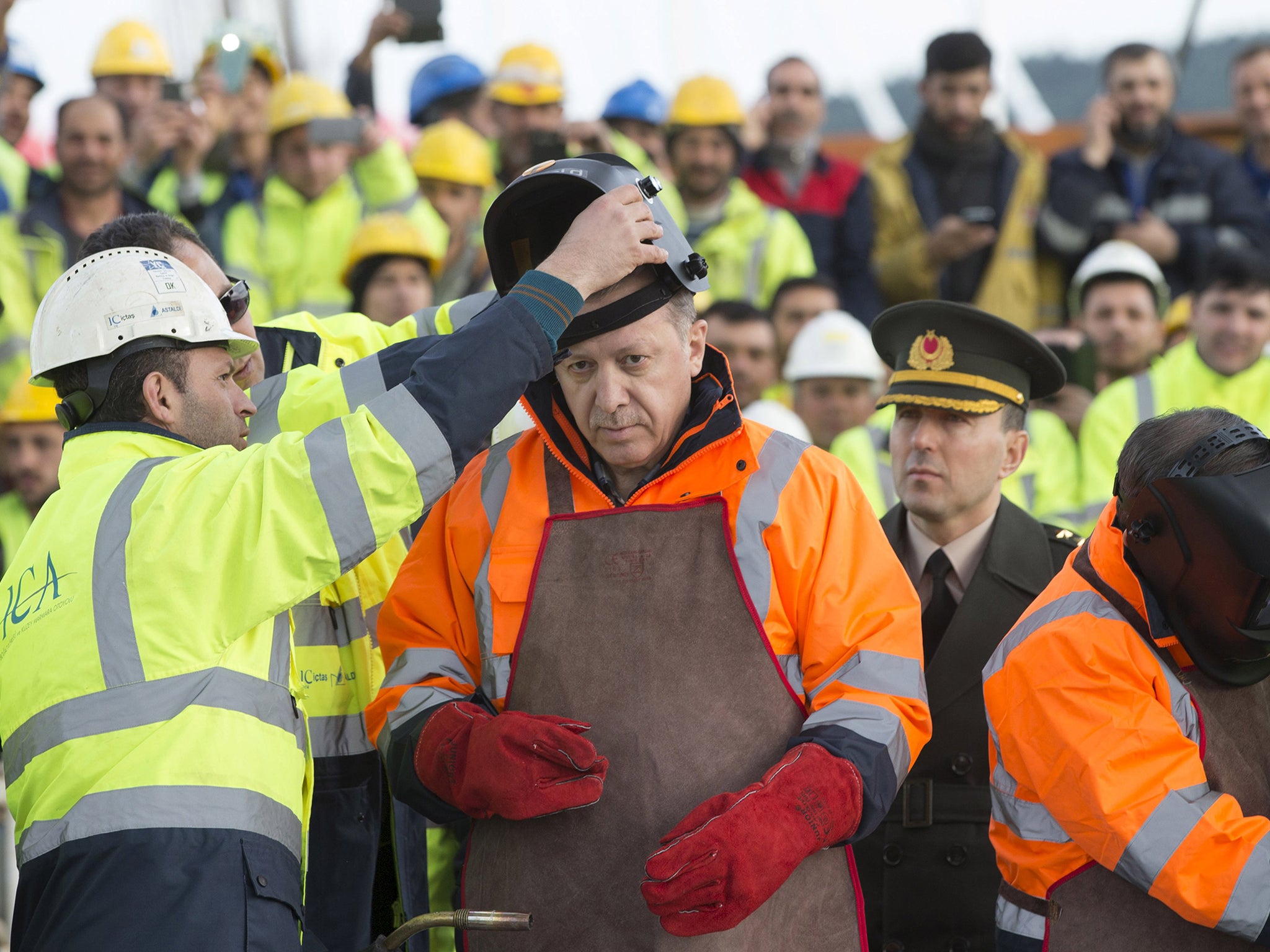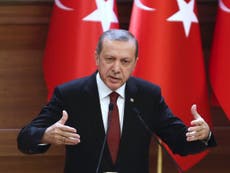Turkey has managed to conflate the refugee crisis and its own EU membership in a dangerous way
“The EU finally got Turkey’s message and opened its purse strings. What did we say? We’ll open our borders and unleash all the Syrian refugees on you.”

The EU is at best a shaky construction, but the deal with Turkey brokered by German chancellor Angela Merkel is guaranteed to lead to its collapse.
It was Merkel’s call last August under the slogan “Wir schaffen das” (Yes, we can) for an open doors policy towards the massive influx of immigrants that will lead both to her and the EU’s downfall. By September she realized her mistake and Germany reintroduced border controls, but the damage had been done.
A month later, shortly before the Turkish elections, Merkel hurried to Turkey to meet with President Erdogan in an attempt at damage control. The gift package she brought with her included 3 billion euros, visa-free travel for 78 million Turks to the Schengen area, a renewal of accession talks and a seat at the table at EU summits.
As Marc Pierini, a former EU ambassador to Turkey, remarked: “This is what comes of political panic. We went to him on our knees and now he is playing us.”
At the end of November the EU and Turkey confirmed the offer of 3 billion euros in humanitarian assistance, visa liberalisation and the opening a number of negotiating chapters.This would be in return for a joint action plan “to bring order into migratory flows and help stem irregular migration”.
A fortnight earlier President Erdogan, like Colonel Gaddafi, threatened to flood Europe with refugees and the plan worked. The EU paid up. As his advisor Burhan Kuzu tweeted: “The EU finally got Turkey’s message and opened its purse strings. What did we say? We’ll open our borders and unleash all the Syrian refugees on you.”
At last Monday’s EU summit, Turkey upped the ante. In a late night meeting between Merkel and Turkish Prime Minister Ahmet Davutoglou on Sunday night, where the EU’s term president Dutch PM Mark Rutte was present, they agreed on doubling the EU’s contribution, visa-free travel already from June and opening five chapters as well as a swap with one Syrian refugee from Turkey for every Syrian returned from Greece to Turkey.
Merkel was able to present the agreement to her EU colleagues as a fait accompli.
According to Merkel the draft agreement, which will be finalised at a new EU summit at the end of next week, is “a breakthrough” and a “qualitative step forward”, but it has created a furore. One EU diplomat said that EU institutions had been undermined and “stabbed in the back”, and not only Nigel Farage but also the German leftist party Die Linke talk of blackmail.
Already in January Gabi Zimmer, chair of the GUE/NGL group in the European Parliament, condemned “the dirty deals agreed with the Turkish government on refugee policy”.
To enter into this Faustian pact with Turkey would be to betray the principles on which the European Union is supposedly based.
For example, the EU in December 2014 after police raids and arrests of media representatives in Turkey stated that this was “incompatible with the freedom of media, which is a core principle of democracy”, and that “this operation goes against the European values and standards Turkey aspires to be part of”. President Erdogan’s reaction was to tell the EU to “mind their own business”.
Turkey has skilfully exploited the EU’s, and particularly Merkel’s, need to find a way out of this dilemma, but this is where the agreement is fundamentally flawed. Because there are two separate issues at stake: humanitarian aid and a solution to the refugee crisis, and the prospects of Turkey’s EU membership.
Turkey has succeeded in combining the two and used the one as leverage to achieve the other. They should be disentangled.



Join our commenting forum
Join thought-provoking conversations, follow other Independent readers and see their replies